
From PhD To Industry: Valuable Lessons From 5 Years In Industry
“Where do you see yourself in 5 years?”
When asked this question at an interview, my 2019-self envisioned climbing up the scientific career ladder as a PhD in industry. I’d say I’ve met that goal. My technical skill set has broadened and deepened from when I was a newly-minted PhD 5 years ago. Now, I’m seen as a subject matter expert for my field.
But if I’m honest – getting to where I am now was not straightforward.
There were a lot of valuable lessons about being a PhD in industry specifically that I didn’t expect to learn. And of course, they were not insights that I could get while I was still in academia. Those personal and professional growth lessons are what I want to share here.
This (non-conclusive) shortlist are realizations I felt were most formative and useful during my first 5 years I’ve spent in industry. As always, these views are my own, but I hope that there are tips you can take with you on your career journey as a PhD in industry.
Industry is not “grad school with better pay”
Let’s debunk this common misconception about industry and why it’s not helpful.
Most scientists have a sense of their skills and their scientific interests. Grad school helped us develop these. We became experts on a topic that we (hopefully) loved learning about. This is what’s on our resumes to get us into industry in the first place.
(Side note: if you’re interested in learning about the full process of transitioning out of academia into industry, check out my step-by-step guide!)
But did you know that just focusing on your skills and interests won’t get you very far when you’re working as a PhD in industry? I didn’t.
What I discovered for myself is that the sweet spot in industry is where your skills, your interests, and the company needs intersect. This third aspect is something academics don’t think about when they make the transition from PhD to industry.
Doing good science, having great ideas, and being passionate may have been sufficient for grad school; but working successfully in industry requires you to understand the company goals and how you contribute to those.
If your skills and interests don’t line up with the company’s practical needs, you won’t be advancing the main objectives of your team or organization.
For the first two years, I didn’t understand that that was how my impact was being measured. It set me back and I had no idea what I was doing “wrong.”
If I could go back, understanding the importance of this sweet spot would have helped save me a lot of frustration and headache. If you’re a PhD in industry and you want to increase your impact and satisfaction at work – This is something I’d love to help you with!
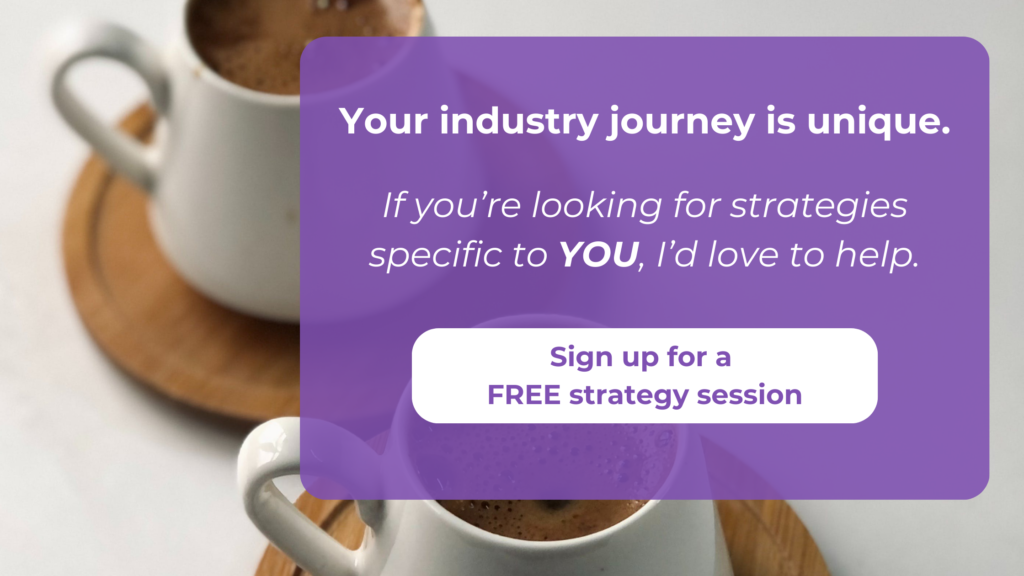
Stop expecting yourself to know everything
As PhDs, we sometimes (or often) feel this pressure to know the answers. We spend years becoming experts in our field – and if we don’t have the answers, we start to feel incompetent.
It was also a big part of our academic training. We prepare for questions during scientific talks. We study material inside and out so that we can confidently answer any question from the audience. It’s the way we show we know our stuff.
I took a lot of this pressure with me, especially when I was transitioning from PhD to industry.
Take it from me – no one is expecting you to know everything. This is especially true if you’re starting a new job or a new role – but also just in general! Industry roles are often multidisciplinary, so there’s bound to be something you’ve never learned before.
So – when you don’t understand something, don’t be afraid to ask. Don’t let your ego get in the way. It’s the best thing you can do for yourself.
The sooner you ask, the less time and energy you’ll waste around 1) looking for the answer (which may or may not be obvious) or 2) making an incorrect conclusion or assumption that puts you on a long detour.
Trust me, you’ll always wish you asked earlier!
Stop trying to make things perfect
My fellow PhDs ladies – we struggle with this THE most. It was true for me as a grad student and it followed me from PhD into industry. What’s crazier is that we often don’t realize we’re aiming for perfection!
I understand this SO well. I just wanted to do things properly. I wanted to work out the details to minimize mistakes. After all, nothing was more embarrassing than a preventable error, and I definitely didn’t want to do twice the work repeating it to fix the error.
There’s two ways perfection has back-fired for me in industry: 1) it took me a lot of energy to scrutinize and triple-check everything and 2) it made me look hesitant and unsure.
To be sure, there’s nothing wrong with being careful. If I’m honest, I still lean towards the cautious side. However, what I’ve come to realize is that not everything needs to be treated with the same level of detail and caution.
“Perfect” takes time and energy. And sometimes you may find yourself in a situation where you have neither. Personally, it took time for me to realize that there was more leeway around this than I was used to giving myself.
Instead of focusing on making everything perfect, it’s about knowing and choosing which tasks need to be treated like my life depended on it. And that was – in fact – NOT most things.
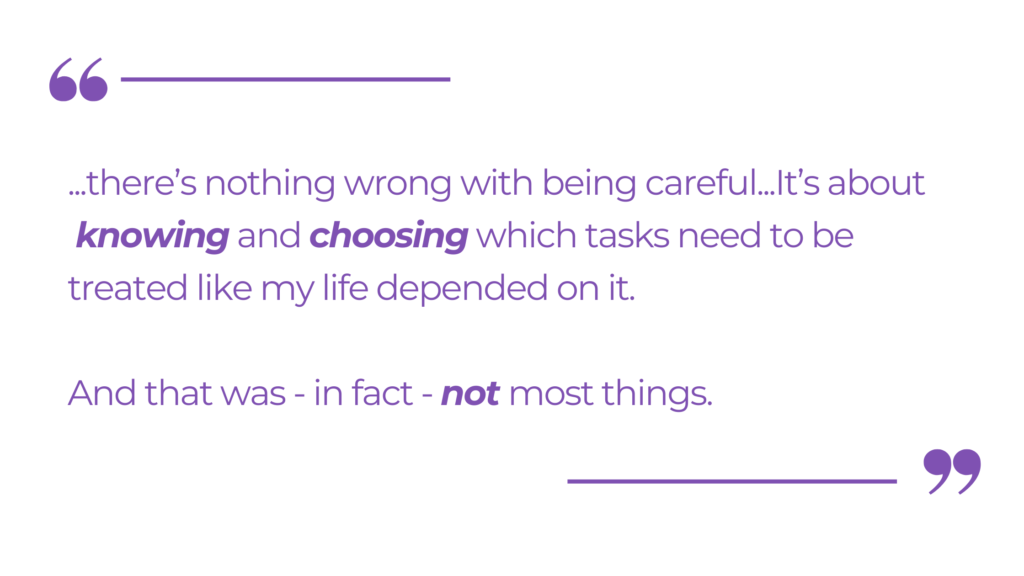
Treat your industry career like a marathon
The average science PhD program takes 4-6 years. This is what we’re familiar with in grad school. Our PhD programs had a specific structure to it. While it was long in its own way, it was also high intensity as we pushed to meet academic milestones.
Your post-PhD career, however, is for decades. Let that sink in for a minute.
Your career is a marathon. Living like we’re still in academia on “sprint-mode” is just not sustainable. Personally, I realized the hard way that it was not the best use of my energy and impacted my health (more on that in a section below).
Part of this has to do with how the industry is structured. For instance, in biotech, job levels are commonly tied to years of experience. Of course – there’s always some variance across companies. You might be able to advance faster at certain companies or via job-hopping.
At some point, however, things level out. Why? Because it boils down to the experience you’ve gained; and that comes with time.
For my fellow high achievers out there, my unpopular opinion is this: There’s no rush. It doesn’t mean you can’t have short term goals, but just remember that in the grand scheme of things, you have time on your side.
Instead, pace yourself as you continue learning. And trust that things have a way of working out in their own time.

You can make your own opportunities
In my years as a PhD working in industry, I’ve experienced 1) being overlooked for opportunities, and 2) feeling stagnant in my role. The common thread? Both made me feel confined and neither situation felt good.
When I felt like I had no say in the matter, it was hard NOT to lean into victim mentality.
It wasn’t until recently that I discovered I could proactively carve my own opportunities – even within my current role. I just didn’t know how to.
Here’s what I know now:
When the opportunities didn’t land in my lap, I realized that I needed to get clear on what I wanted and verbalize my interests to my manager.
I stopped assuming that they knew what I wanted. And I stopped letting the fear of hearing “no” prevent me from asking. Instead, by voicing my interest now, I could be top-of-mind the next time a similar opportunity comes along.
Secondly, once I knew what I was interested in, I proactively started learning about it myself.
- I could ask a colleague who’s doing what I’m interested in to give me a 30 minute introduction.
- I could ask to sit in on relevant meetings for the topic I was interested in.
- I could pick up a course or tutorial on my own.
Just because I might not get to do what I want in an official capacity doesn’t mean I can’t find ways to get exposure to it. In fact, I discovered that proactively pursuing my interests was the best way to set myself up for related opportunities later.
The bottom line is that no one can stop you from finding ways to grow – whether it’s in an official or unofficial capacity. You’re not confined by your current role, even if it can feel like it. It might take more effort on your end – but if you decide it’s worth it – no one can stop you from branching out and growing.
One final note: while growth is something I strongly believe we have agency over, I want to acknowledge that this process can look different for each person. Workplaces and company cultures can vary, and our individual personalities play a role in this too.
What I’m sharing is what has worked for me in the past. But it might look different for you. It took me years to figure out an effective strategy for creating opportunities on my own terms. If this is something you want to implement for your work situation, I can help!
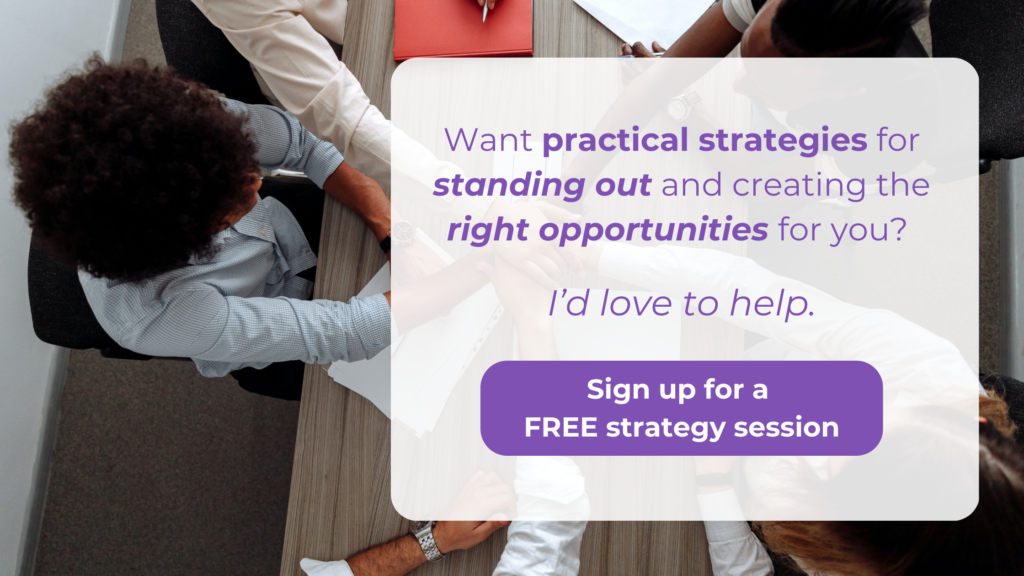
Comparison is not fair to anyone (including you)
We’ve all heard the saying, “The only person you’re competing with is yourself.”
I’ll be honest – I struggled with this a lot as an early-career PhD in industry. I wanted to move up the career ladder quickly. As a byproduct, I got caught up in measuring myself against my peers.
This quickly worsened into feelings of bitterness and frustration – especially when I saw my peers succeed while I was left behind.
Let’s just say, these were not my best moments. But at the same time, how do we not get swept up into comparison when it is so built-in to our society?
Two lessons I learned along the way:
First, let’s address an external detail that gets overlooked: job titles are not the same across companies. A “Scientist 1” at Company A may not be the same as “Scientist 1” at Company B. They may not be equivalent levels or have the same responsibilities. Even within the same company, there can sometimes be differences across departments.
Secondly, I want to suggest a mental reframe: the people we spend our time and energy comparing ourselves to (and subsequently get upset over) have full stories that we’re not privy to.
Some things I try to keep in perspective when the comparison bug hits me are:
- I don’t know what the other person struggled with to get to where they are.
- I don’t know whether they’ve had prior academic or work experience that gives them a leg up
- Maybe they had help or support that I don’t have access to.
The point is – you’re only seeing one part of the picture that’s visible to you. There are a lot of variables and subjectivity. Don’t compare your life, career, or accomplishments to someone else’s partial story.
It’s not going to be a complete reflection of who they are OR who you are relative to them. Instead, focus on you and what is in your power to help you grow and reach your career goals.
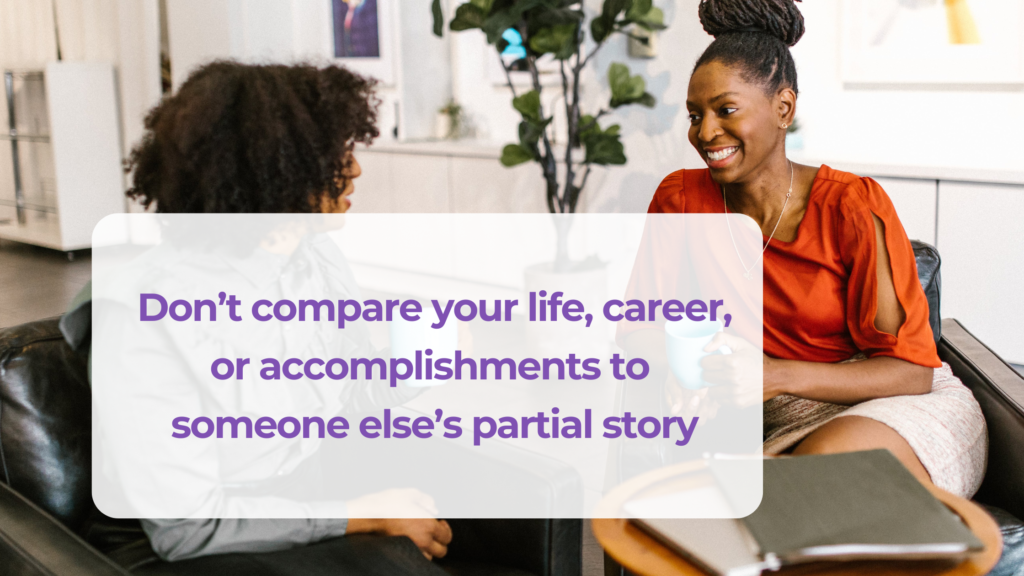
Health comes first
I’m someone who has always been mind over matter. It’s what got me through everything in my life so far. And it has worked. If you’ve made it through a PhD, I imagine you’ve also lived your fair share of this philosophy.
I also know a lot of PhDs experienced burnout during grad school. I, fortunately, was not one of them. Ironically, I experienced burnout a few years after I started working as a PhD in industry.
My burnout snuck up on me. After all, I had survived grad school without experiencing it and never thought it would happen to me. I never needed to treat my physical and mental energy as limited resources before, and I had no idea it would be so challenging to recover.
When my physical and mental health were at its lowest points, I struggled to get anything done. I was frustrated by how much I wanted to do, but physically and mentally couldn’t do anymore.
My burnout became the source of some of my deepest self-reflections. It sparked some of the big changes in my mindset and habits – including my decision to prioritize my health.
Those of you who have experienced burnout will understand. But if you haven’t experienced burnout – I sincerely hope you never do!
Take it from a PhD who experienced burnout in industry – nothing is worth burning out for. Our physical and mental energy are our most valuable resources that allow us experience the world. Don’t wait for it to “get bad” before you pay attention to your health.
Learn to understand the people you work with
Working in industry is a team sport. That means you’re bound to work with someone who has a different approach to work than you do. You might find that some people are easier for you to work with than others.
While I’m sure any of us would jump at the chance to only work with our favorite colleagues, that’s probably not going to happen.
For the people that I’ve struggled to work with – I realized it boiled down to several key differences:
- We had different working styles
- We valued or prioritized different aspects of our work
- We have had different prior experiences that influenced the way we behaved
To be clear, this isn’t an excuse for any ill-will or disrespectful behavior. I also don’t condone accommodating the other party at all costs. My main suggestion is to observe and understand why the other party might choose to do things their way.
Everyone is driven and motivated by different things. Learn what those things are, and that will help you understand how to work with them.
Though it can be challenging to learn, being able to collaborate with diverse work styles is an understated superpower. From personal experience, adapting to different work styles rather than fighting them was the best way to reduce frustration have more productive teamwork.
We cannot change or control others. But managing how we respond and adapt puts us back in charge of our own mental and emotional energy.
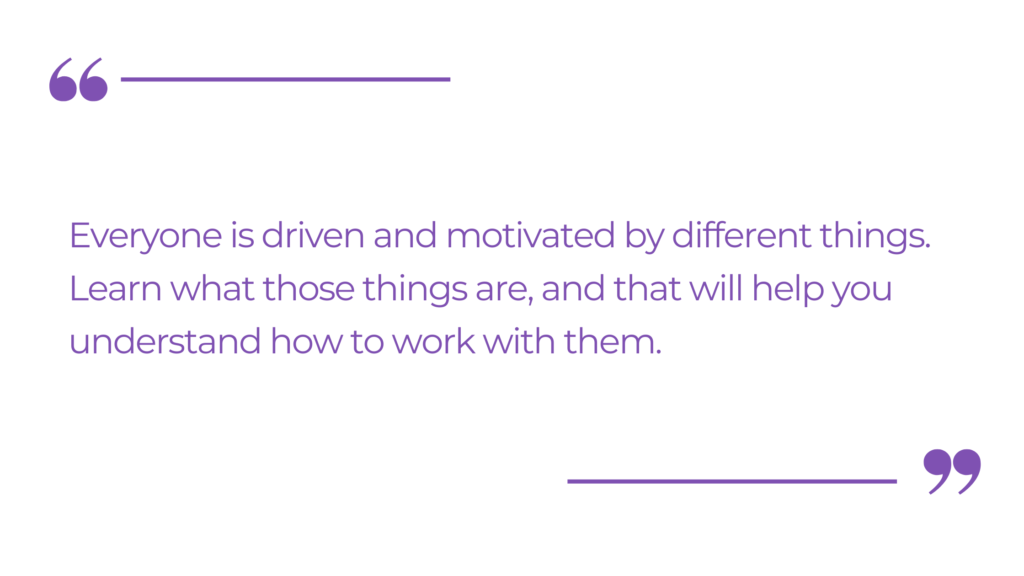
My journey from PhD to industry has taught me a lot of valuable lessons. It’s transformed me personally and professionally in ways I couldn’t have imagined 5 years ago.
While every journey is unique, I hope my reflections and lessons learned offer you guidance and encouragement as you navigate your own PhD to industry journey.
Here’s to your PhD career journey and to my next 5 years as we continue to learn, evolve, and adapt together!
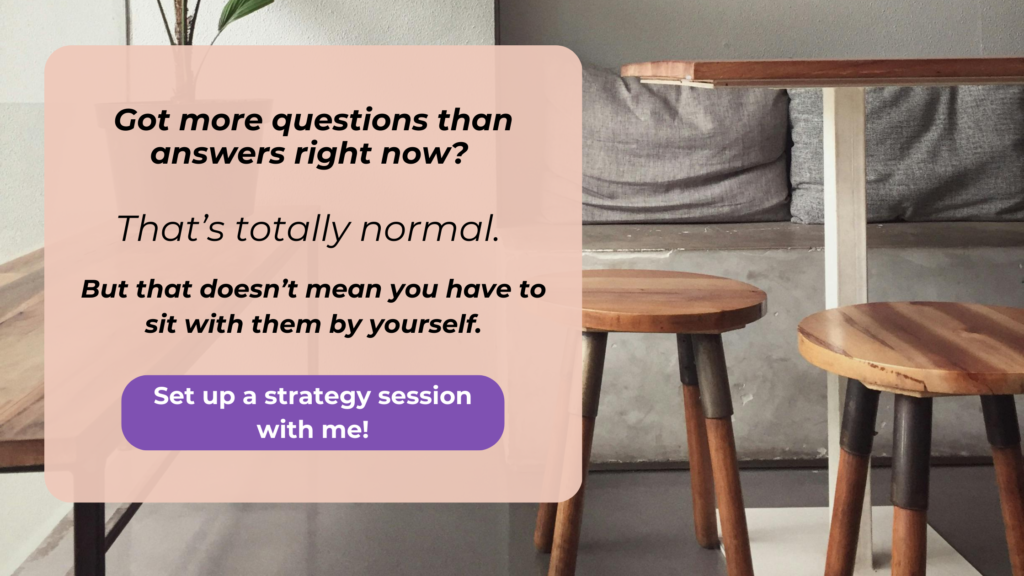




Add A Comment